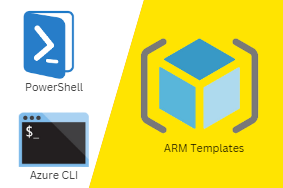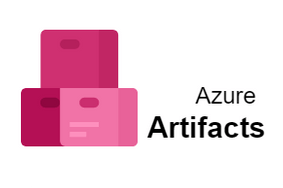If you have experience with Azure as an infrastructure engineer, and if you’re interested in learning the tools and processes needed to automate software development, then becoming an Azure DevOps engineer could be the right move for you. While it’s not strictly necessary to have experience with DevOps processes before joining the team, you will need to learn those techniques quickly once you’re on board with Microsoft’s cutting-edge cloud solutions group. Here are some helpful tips on how to become an Azure DevOps engineer, whether your goal is permanent employment or freelance consulting work.
What to study if you want to become an Azure DevOps Engineer
The Azure Development and Operations job role is brand new, but it’s already starting to fill up. There are two main paths you can take to become an Azure DevOps engineer: a developer-oriented track or operations/automation-oriented track. The latter requires more experience with devops in general, but both require a strong understanding of at least one programming language. Beyond that, you’ll need some database knowledge (SQL Server or MySQL), know how to use version control systems like Git or Mercurial, and be familiar with development tools like Visual Studio, VSTS/TFS, Jenkins, Chef/Puppet/Ansible/SaltStack. If you want to develop for Azure, then there are also additional skills specific to cloud services that will help. Basically, if there’s a skill mentioned in any of Microsoft’s support documentation pages for their products and services, then it probably matters here too. You should have solid networking skills as well—specifically cloud networking using technologies like NSGs and VNets—but these days it seems hard to find anyone without them so they don’t really count toward your speciality as much as they used to either way. And speaking of cloud skills specifically, knowing Linux (RHEL or CentOS) is almost a requirement these days too.
The skills you need as an Azure DevOps Engineer
The first step to becoming a DevOps engineer is deciding which software languages you need to learn. While there are dozens of different languages you could learn, most modern web applications rely on Python, Ruby and Javascript for their back-end development. For example, Google uses Python for both its website and its search engine; Facebook uses PHP; and Twitter relies on Ruby. On top of your choice of back-end language, mastering HTML5 or CSS3 can help you create attractive interfaces while learning how to program a computer will help you write code in whatever language you choose. Understand these basics before pursuing a degree: Many tech companies look for applicants with college degrees, particularly those who have studied computer science. According to some employers, however, any IT training beyond that—even if it’s just entry-level courses like Intro to Computer Science—can also be useful. Find out what certifications matter: Most tech companies offer at least one official certification course as part of their hiring process. This not only shows that you’re serious about working with them but also proves that you have all the skills necessary to perform well at work once hired.
How can I get my first job as an Azure DevOps Engineer?
If you want to break into a new industry, one of your best tools is Google. Look for job postings and company career pages. Don’t just look for your current city, but nearby ones too—you never know where your next opportunity might come from. If you’re just starting out, there’s no shame in looking at part-time jobs or internships. Find out what companies are doing in your field and how they structure their teams; once you get a feel for how things work, that knowledge will help you when it comes time to craft your resume and cover letter. Once you have these elements figured out, craft your elevator pitch (i.e., a short description of yourself and why someone should hire you). Keep it brief: two sentences max! Even if no one asks, having that information ready will make sure you can seize on any opportunities as they arise.
Where can I find jobs as an Azure DevOps Engineer?
The Internet is teeming with job websites, and a quick search can help you find openings in your city or even at one of your favorite companies. Sites like Indeed, Glassdoor, and Monster have great tools that allow you to narrow your search by location, pay rate, and more. Start making connections : If you’re looking for a new job as an Azure DevOps engineer—or really any position—the most important thing you can do is network with people in your field. Reach out directly via LinkedIn or Twitter to people who work at companies that interest you. Ask them about their experience and ask if they know anyone else who might be interested in a connection! You never know where your next best opportunity will come from. Keep learning: This applies no matter what industry you want to go into, but having a diverse skill set (and proving it on your resume) will set you apart from other applicants. Always try to keep up-to-date on trends in technology; if coding isn’t part of your job description right now, learn how to code anyway. Learn relevant skills when possible through online courses and paid bootcamps.
How much can I expect to earn as an Azure DevOps Engineer in 2022?
The median annual salary for an Azure DevOps engineer is $108,000. That’s certainly respectable pay and above-average growth, but how much do you really need to make? In order to calculate your earning potential, you need a few baseline pieces of information. The first is experience level: For example, an entry-level Azure DevOps engineer with less than 5 years of experience earns around $110K annually. But as engineers gain more skills and expertise (as well as promotion), their earnings increase significantly—upwards of $150K for 10+ years of experience and those with a Microsoft Certification can earn even more!



0 Comments